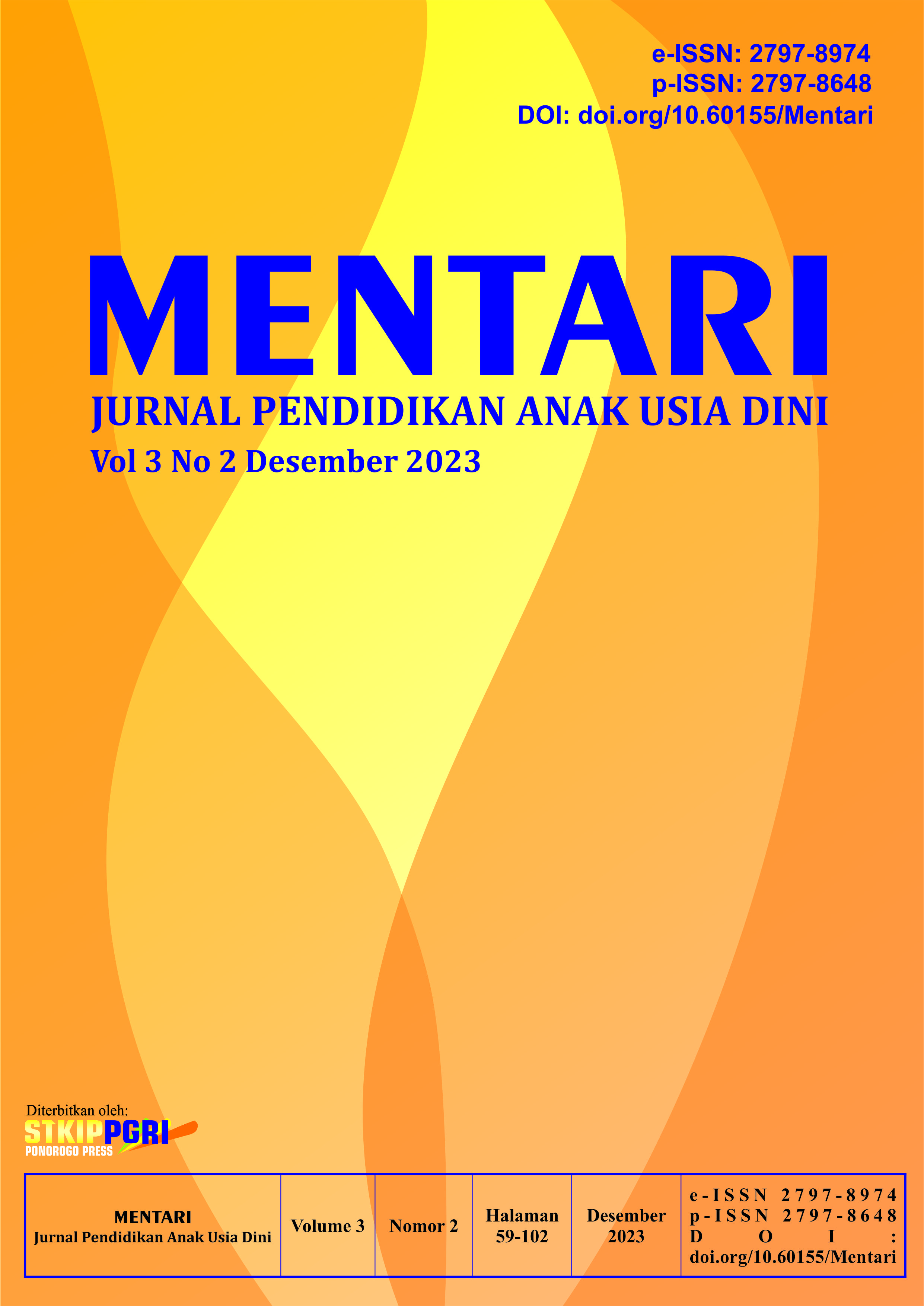Penerapan Toilet Training pada Anak Usia 3-4 Tahun: Studi Kasus di Cendekia Kids School Madiun
DOI:
https://doi.org/10.60155/mentari.v3i2.349Keywords:
Early Childhood, Toilet Training, Case StudyAbstract
The importance of successful toilet training learning provides several advantages for children. Psychologically it trains hygiene habits (toilet-habits), namely: understanding the need to defecate and being able to master it in a civilized manner and practicing responsibility for maintaining personal hygiene, and regarding his physical health. The current research employs qualitative method. Data collection methods used were observation, interviews and documentation. Data analysis uses the data analysis technique of the Miles and Huberman models, involved the following steps: data reduction, data display and drawing conclusions. The results showed that 1) the implementation of toilet training at Cendekia Kids School went through several stages, including: teaching planning, implementation, and evaluation; 2) the steps of the teacher in training early childhood in toilet training at Cendekia Kids School Madiun namely: habituation, giving a real example, establishing communication with guardian parents, providing direction, teaching children responsibility and giving love; 3) the supporting and inhibiting factors for teachers in toilet training for early childhood at Cendekia Kids School are the knowledge and patience of the teachers as well as the support of parents and guardians for all teachers in toilet training for early childhood at Cendekia Kids School, while the inhibiting factors for teachers are to train independence early childhood in toilet training is the child's mood.






